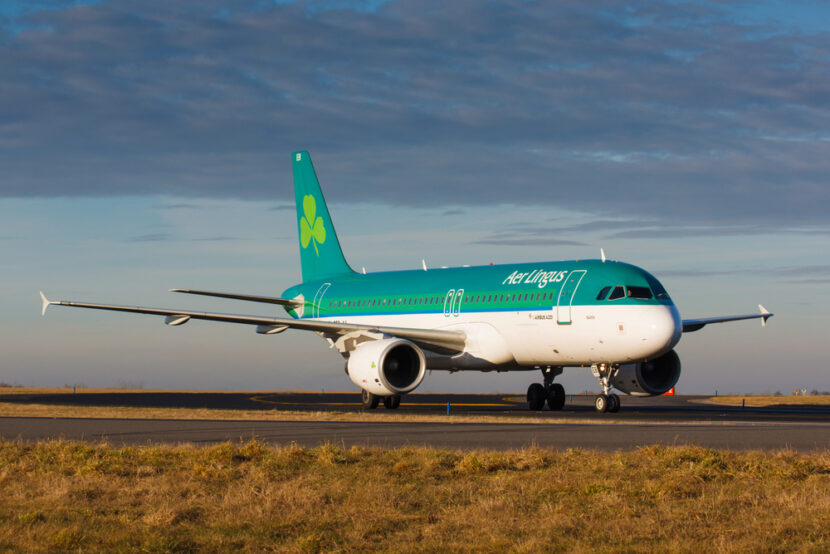DUBLIN – Ireland intends to sell its 25 per cent stake in the Aer Lingus airline to IAG after receiving guarantees that the parent company of British Airways will increase employment and air links with the United States, the government announced Tuesday.
IAG, which also operates Spain’s Iberia airline, confirmed revised terms of its takeover offer in tandem with Ireland’s Cabinet announcement. It confirmed promises to keep Aer Lingus as a separate brand, to reserve its valuable landing slots at London’s Heathrow Airport for Aer Lingus use, and several other conditions demanded by the government in exchange for its acceptance.
IAG first launched its takeover bid in December and, as part of its latest offer of 2.50 euros ($2.72) per share, values the Dublin-based carrier with the trademark shamrock logo at 1.4 billion euros ($1.52 billion). The government, which floated the other three-quarters of Aer Lingus on the British and Irish stock markets in 2006, would receive 350 million euros ($380 million).
But to succeed, the IAG offer still must clear many hurdles. The biggest could be to persuade the Irish airline’s largest shareholder – rival Dublin-based carrier Ryanair – to accept the price.
Ryanair, which built up a 30 per cent stake in Aer Lingus as part of three hostile takeover bids since 2006, said before Tuesday’s announcement it had received no communications from IAG. The offer, if taken, would allow Ryanair to recoup most of its paper losses from its investment in Aer Lingus. But as Europe’s most profitable and cash-rich airline, Ryanair can afford to stand firm and demand more.
The government decision also will require majority approval by parliament. A vote is tentatively scheduled for Wednesday. The two-party government enjoys a strong majority, but support from the coalition’s smaller left-wing party, union-linked Labour, is uncertain.
The proposed takeover also faces months of regulatory scrutiny from competition authorities in Ireland, Britain and the European Union. Those authorities previously opposed Ryanair’s bid on the grounds Ireland required at least two strong brands in competition.
Aer Lingus chairman Colm Barrington said the takeover, if completed, would give the marginally profitable airline to “reap the commercial and strategic benefits of being part of the much larger and globally diverse IAG Group and as a member of the oneworld alliance of 17 airlines.” IAG ownership, he forecast, would “accelerate growth across our network, enhance Ireland’s position as a natural gateway connecting Europe and North America, give Irish tourism access to major traffic flows and customer loyalty programs, and provide better access for business interests and to cargo flows.”
Ireland’s business and tourism chiefs welcomed the decision as offering an economic boon for Ireland, an island nation highly dependent on air links whose two main trading partners are Britain and the United States.
IAG said it would invest in Aer Lingus’ already successful trans-Atlantic routes, adding four new North American destinations, as part of a strategic commitment to make Ireland a bigger hub for European-American tourist traffic. It also promised to keep running Aer Lingus’ existing services between Irish airports and Heathrow for seven years.
Labour unions expressed reservations about security of jobs and benefits, but the government and IAG said the deal would require the Spanish-British company to honour existing contracts with Aer Lingus’ unionized work force. IAG also pledged to increase employment by more than 700 positions by 2020.
